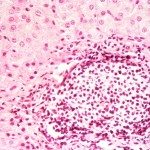Lien vers Pubmed [PMID] – 39208833
Lien vers HAL – pasteur-04788744
Lien DOI – 10.1016/S2352-4642(24)00143-3
Lancet Child Adolesc Health 2024 Oct; 8(10): 721-729
Respiratory syncytial virus (RSV) is a major cause of hospitalisations and deaths among infants worldwide. France was one of the first countries to implement a national programme (beginning on Sept 15, 2023) for administration of nirsevimab, a single-dose long-acting monoclonal antibody treatment, to infants born on or after Feb 6, 2023, to prevent lower respiratory tract infection caused by RSV. We aimed to estimate the effectiveness of nirsevimab and the number of hospitalisations averted in children younger than 24 months in real-world settings.In this modelling study, we developed an age-structured deterministic model characterising RSV transmission as well as plausible scenarios for the administration of nirsevimab doses based on maternity ward and community pharmacy supply data. We retrospectively estimated nirsevimab effectiveness in infants younger than 24 months during the 2023-24 RSV season in France (excluding overseas territories) and the number of averted hospitalisations for RSV bronchiolitis occurring after emergency department visits, by calibrating the model to hospital and virological surveillance data from Aug 21, 2017, to Feb 4, 2024, alongside serological data from a previous cross-sectional study. To assess the robustness of our estimates, we conducted sensitivity analyses in which we modified our assumptions about the number of doses administered, the reconstruction of the number of RSV-associated hospitalisations for bronchiolitis, the duration of maternal and post-infection immunity to RSV, and the number of contacts in children aged 0-2 months.We estimated that nirsevimab administration prevented 5800 (95% credible interval 3700-7800) RSV-associated hospitalisations for bronchiolitis after emergency department visits among children younger than 24 months, including 4200 (2900-5600) hospitalisations among those aged 0-2 months, between Sept 15, 2023 (the date nirsevimab was introduced), and Feb 4, 2024-a 23% (16-30) reduction in the total number of hospitalisations and a 35% (25-44) reduction in the 0-2 months age group, compared with the scenario without administration. In our baseline scenario, in which we estimated that 215 000 doses of nirsevimab were administered by Jan 31, 2024, the estimated effectiveness against RSV-associated hospitalisations for bronchiolitis was 73% (61-84), corresponding to one hospitalisation averted for every 39 (26-54) doses administered. In sensitivity analyses, nirsevimab remained effective against RSV-associated hospitalisations for bronchiolitis after emergency department attendance.Our findings show that nirsevimab administration campaigns could effectively reduce the RSV-related hospital burden of bronchiolitis in children younger than 24 months.European Commission, Laboratoire d’Excellence Integrative Biology of Emerging Infectious Diseases programme, and INCEPTION project.









